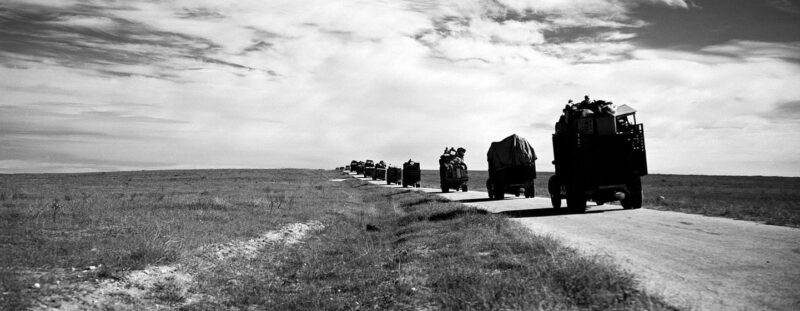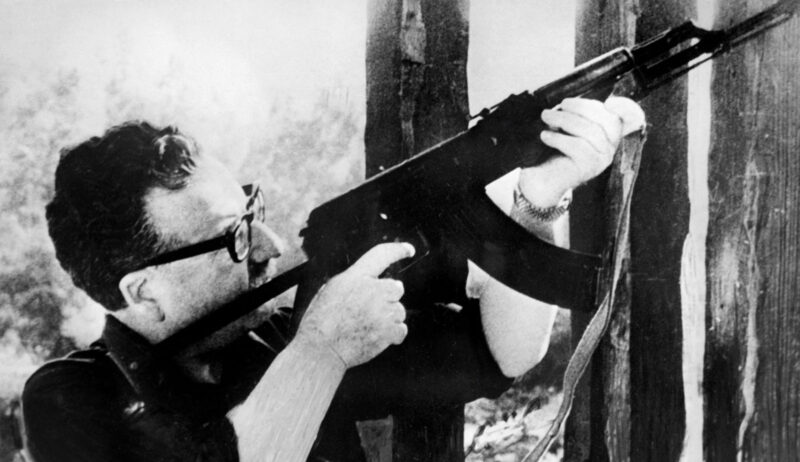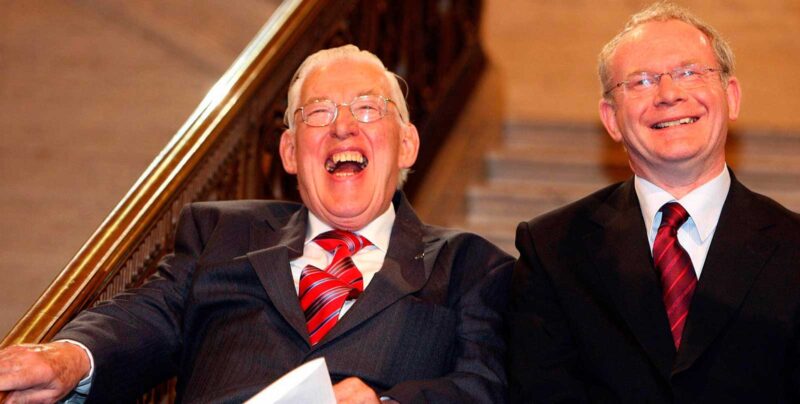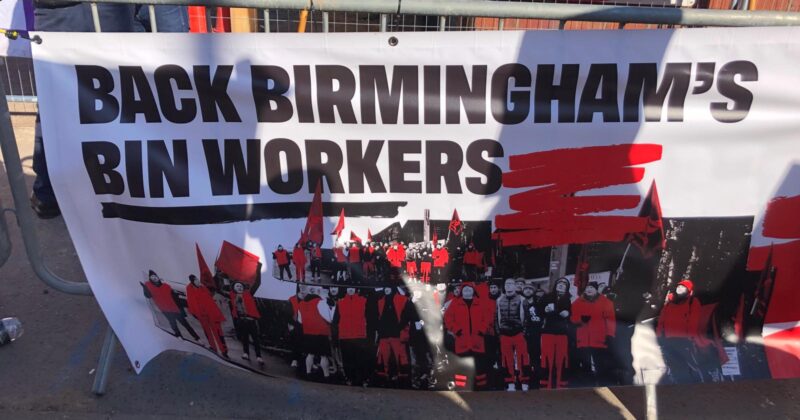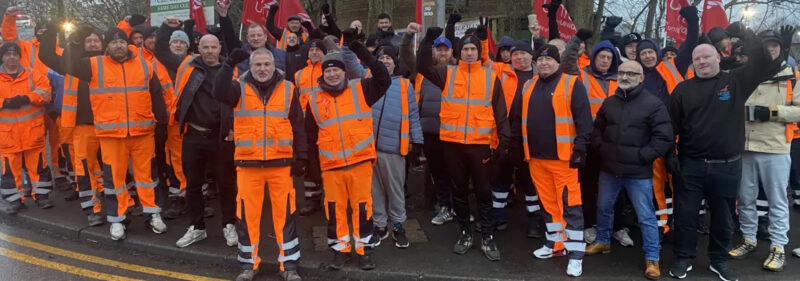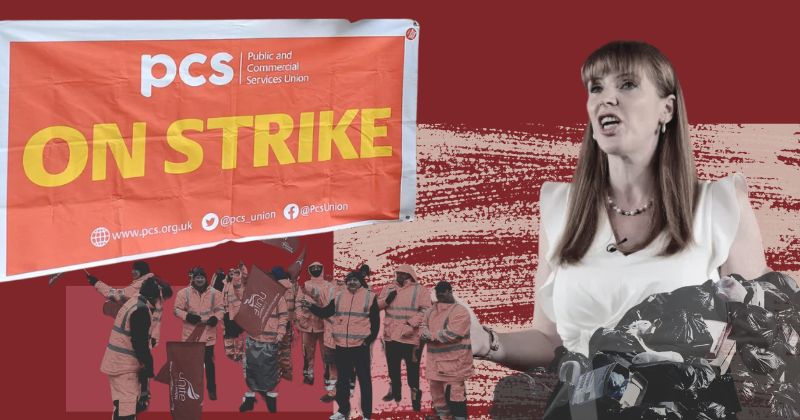Pentonville Five: when dockers fought the law and won
Forty years ago, four London dockers were arrested and held in north London’s Pentonville Prison. The next morning a fifth was arrested outside while protesting at their arrest. Yet within five days the Pentonville Five were freed by a wave of unofficial action and the threat of a general strike. Dave Stockton looks at the lessons for today
 IN 1970 THE TORIES under Edward Heath won a shock election victory over Harold Wilson’s Labour government. In the preceding years, thousands of youth and militant workers, politicised by the Vietnam War, had joined far left groups: Gerry Healy’s Socialist Labour League (SLL), Tony Cliff’s International Socialists (IS), and Tariq Ali and Pat Jordan’s International Marxist Group (IMG).
IN 1970 THE TORIES under Edward Heath won a shock election victory over Harold Wilson’s Labour government. In the preceding years, thousands of youth and militant workers, politicised by the Vietnam War, had joined far left groups: Gerry Healy’s Socialist Labour League (SLL), Tony Cliff’s International Socialists (IS), and Tariq Ali and Pat Jordan’s International Marxist Group (IMG).
But the biggest force among union militants was the Communist Party of Great Britain (CPGB). With around 40,000 members, it stood at the centre of a network of convenors, senior stewards and regional officials.
The CPGB had built the Liaison Committee for the Defence of Trade Unions (LCDTU) to resist Harold Wilson’s attempts to shackle shop stewards, then at the height of their strength and militancy, launching several days of political strikes in 1969 and 1970.
Kill the Bill
The new Heath government’s anti-union proposals, the Industrial Relations Bill, abolished the legal immunity from damages for strike action enjoyed by unions since 1906, and prefigured many of today’s anti-union laws. The National Industrial Relations Court (NIRC) could impose ballots before strikes and a 60-day cooling off period before or during them.
It outlawed the closed shop (compulsory union membership) and secondary picketing (pickets of any employer not directly involved in a dispute), and obliged unions to submit their rulebooks to a registrar for approval.
It allowed courts to seize union funds if they failed to implement its rulings. And it allowed the arrest of shop stewards or union officials for contempt of court.
The LCDTU campaigned against the proposals under the slogan “Kill the Bill”, holding shop stewards’ conferences of over a thousand and calling days of action, including one held in October 1970 when 250,000 went on strike. This did not prevent the Industrial Relations Act from becoming law, but did bring together a movement of shop stewards and rank and file militants.
The Trades Union Congress (TUC) leadership had rejected “political” strike action against the Bill. Right-wing union leaders like EETPU electricians’ leader Frank Chapple argued that it was the law and must be obeyed. However AUEW engineer’s leader Hugh Scanlon, and TGWU transport union leader Jack Jones pushed the TUC to opt for passive resistance, ordering its unions to refuse to cooperate with the NIRC. Jones and Scanlon had both been elected with support from the CPGB’s “Broad Left”.
The dockers take on the law
Dockers, led by unofficial shop stewards’ committees in Liverpool and London, had been waging a battle against containerisation, the stuffing and stripping of containers at depots often distant from the ports, by non-union labour on worse pay and conditions.
The NIRC issued an injunction against London dockers picketing the Chobham Farm container depot in Newham, but picketing continued in defiance of the law. The NIRC then issued arrest warrants for five stewards (Bernie Steer, Tony Merrick, Cornelius Clancy, Derek Watkins and Vic Turner), and they were imprisoned on 21 July.
Michael Fenn, then a leading CPGB shop steward, and secretary of the National Port Shop Stewards movement, later recalled:
“When it [the arrests] happened we immediately decided to shift the centre of our picketing to Pentonville prison and make that the organising centre for our operations. The docks had come out immediately they heard about the warrants, and this went for all the docks all over the country.”
As the news spread, 44,000 dockers and 130,000 other workers downed tools, bringing docks to a standstill at London, Liverpool, Cardiff, Swansea, Glasgow, Bristol, Felixstowe, Leith, Chatham, Ipswich, Middlesbrough and even King’s Lynn.
Rank and file militants understood that they were not simply waging a sectional industrial dispute but a class-wide battle, and looked for solidarity from every other section of workers. Dockers picketed Fleet Street’s newspapers with the slogan, “Five Trade Unionists Are Inside – Why Aren’t You Out?” Within four days, 250,000 workers were on unofficial strike.
At this point the crucial task for revolutionary socialists was to agitate for an all out general strike to smash the Act, and for local councils of action to coordinate a developing general strike from below; but also to demand that the TUC itself call a general strike. Only one small Trotskyist group, Workers Fight (predecessor of today’s Alliance for Workers’ Liberty) did this clearly and unequivocally.
The International Socialists (today’s Socialist Workers Party) played an important role in the strikes, but abandoned its previous call for councils of action just when they were needed, tailing the existing movement instead. Opposition to this would play a role in the formation of the Left Faction of IS, which later became Workers Power.
And win in the short term…
Nevertheless pressure mounted on the TUC to call a general strike. The Finance and General Purposes Committee (FGPC) of the TUC General Council met on the Wednesday, and Hugh Scanlon moved a resolution for a one day strike and demonstration for the dockers’ release for the next Monday.
Jack Jones moved to extend the strike’s demands to the repeal of the Industrial Relations Act, only to withdraw faced with the right wing union leaders’ opposition. A one-day general strike was called for 31 July, embarrassing TUC general secretary Vic Feather. He had previously said that “no responsible trade unionist” wanted a general strike, and that one would be harmful to the country, and “to the trade union movement itself.”
In fact this atypical act of courage by the TUC leaders was not quite what it seemed. Knowing that the government was about to execute a U-turn, Jack Jones later recalled that they moved a resolution for a general strike “in the knowledge that it wouldn’t be necessary.”
A hitherto little known government official called the Official Solicitor rushed to the High Court, successfully arguing to free the dockers on a technicality. They were carried from Pentonville shoulder high.
The mounting wave of unofficial action, and the union leaders’ inability to control it, forced the Tories to surrender whilst there were still “responsible” men in charge. The end of the summer holidays in a few days time could also have brought miners, engineers and car workers into the fray.
…But lose in the longer term
A national dock strike began the next day, ironically putting power back into the union officials’ hands. After three weeks, Jack Jones struck a deal with employers’ federation leader Lord Aldington, over the heads of the rank and file dockers. While it preserved the conditions on the docks for another decade and a half, unregistered ports and containerisation were allowed to continue, undermining the unionised character of the industry as a whole.
Militants were furious at this sell-out. At a press conference in Liverpool, when Jones refused to explain himself to demonstration of 8,000 dockers outside, a group of them burst in, tore up his papers and poured a jug of water over him.
The limits of the “left” union leaders were now clear, but the rank and file had no means to take the leadership themselves. The LCDTU, while it organised the rank and file, was not controlled by them, and played no direct role in the dispute after a 10 June conference where delegates were prevented from putting amendments to a CPGB-supported motion.
Faced with technological change, the dockers really needed to extend union membership and conditions to all the unregistered ports and container depots, to preserve the gains they had made during and after the Second World War, as well as to the transport system connected to it.
This would have extended to all of these workers the best conditions thus far won: control over the jobs, safety and working conditions, reduced hours and increased pay. The position of a powerful and politically conscious battalion of the British working class would have been defended and enhanced.
Similar things could have happened in the struggles of all the powerful detachments of the labour movement of the 1970s and 1980s. Miners, steel workers, and car and print workers all suffered defeat, not only or mainly because of some inevitable de-industrialisation, but because the unions under bureaucratic leadership failed to counter these moves by management and governments with a fight for workers’ control of industry.
Moreover, even the greatest workers’ victories cannot prevent a ruling class comeback and revenge if they fail to realise their full potential. And revenge came in the form of even heavier anti-union laws, imposed in stages before and after Thatcher defeated the miners in 1985.
These laws hamper effective strike action to this day. The lesson of 1972 is that these shackles can only be broken by defying them, defying jail and repression and taking class wide action up to and including a general strike.
Union leaders, even the most left wing, need to be under the control of a powerful and organised rank and file movement, one willing to act with the officials when they fight, and without them when they do not.
But the lessons of 1972 also show that if decisive moments and golden opportunities are not to be lost or frittered away, then we need a centre to develop a political strategy for the struggle – a leadership as clear headed and ruthless as that deployed by the ruling class, and able to stand against existing leaderships like that offered by the CPGB.
In short, this means a new workers’ party, one willing and able to organise against and criticise the vacillation of left leaders like Jones and Scanlon, and to give a political alternative to the programme of relying on Labour to reform capitalism in government: a party committed to directing workers’ resistance towards the revolutionary overthrow of the system.
